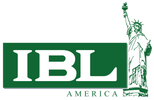In 1986, a transcription factor binding to an enhancer region that is necessary to express immunoglobulin κ light chain gene on mature B cells specifically was identified, and it was named nuclear factor κB (NFκB, nuclear factor of kappa light chain gene enhancer in B cells). Afterwards, it was clarified that NFκB is two hetero dimeric forms of p50 and p65, and it was also found that each molecule has high homology with c-Rel (oncoprotein of avian retrovirus (reticuloendotheliosis virus strain T) that induces a tumor to the spleen) by cDNA cloning. Nowadays, NFκB is classified into Rel family proteins. In a cell signaling system, NFκB forms a complex with IκB in the cytoplasm, and it is inactivated. It is thought that NF-κB is a transcription factor distributed in many kinds of cells. It shifts to the nucleus by IκB's being dissolved along with various stimulation, and then controls the expressions of various genes. For research use only, not for use in diagnostic procedures.
- application:
- Can be stained in formalin fixed paraffin embedded tissues after microwave treatment with 10mM citric acid buffer; WB.
- Catalog number:
- 18663-S
- Datasheet:
- formulation:
- Lyophilized product from 1% BSA in PBS containing 0.05% NaN3
- immunogen:
- Synthetic peptide for C-terminal of Human NF kappa B p50 protein
- MSDS:
- notes:
- For research use only, not for use in diagnostic procedures.
The datasheet for this product (see above) is intended to serve as an example only. Please refer to the datasheet provided with the antibody for precise details. - Other names:
- Please see datasheet
- Protocol:
- purification:
- Affinity Purified with synthetic peptide
- size:
- 10 µg
- specificity:
- Confirmed in Human KG-1 Cell Line and Human Raji Cell Line
- storage:
- Lyophilized product, 5 years at 2 - 8 °C, Solution, 2 years at -20 °C
- Species:
- Human
- Host:
- Rabbit







